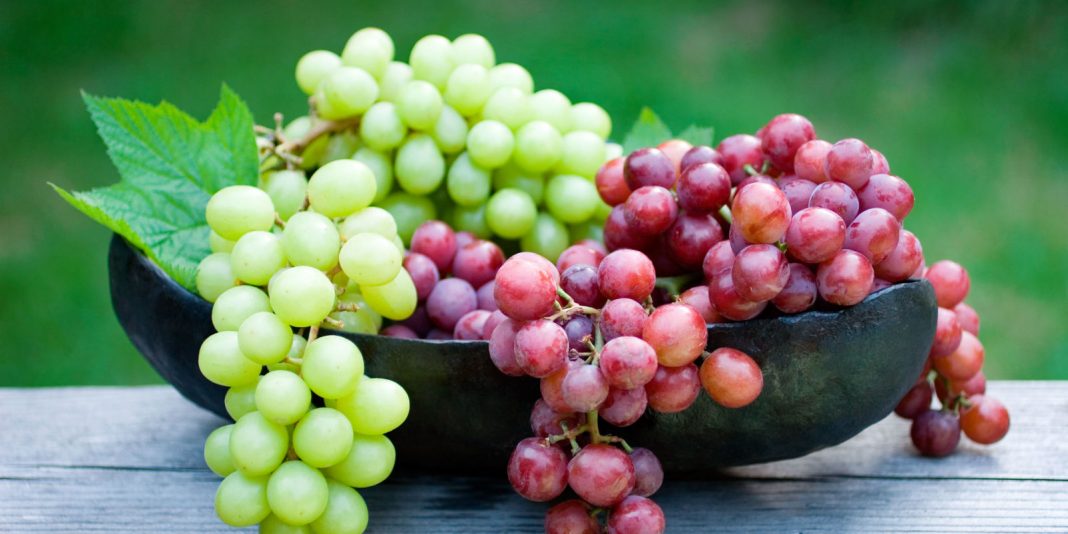In a suit Moses Gitile, 30, looks like a corporate manager (which he is). On weekends, though he easily switches to a farming garb.
“Just because I head a company does not mean I can’t be a farmer,” he says. Gitile farms a one-acre vineyard in Kamulu: about 15km off the Eastern Bypass in Nairobi. The grapevines on his farm, now three months old, are from South Africa. “The best grape varieties in the continent come from South Africa,” he says.
From medieval ages grape growing has been concentrated in temperate climate areas. Yet wine is consumed worldwide. “I would like to change this; especially for Kenyan wine enthusiasts who would love authentic Kenyan wine,” Gitile says. In Africa, South Africa is synonymous with vineyards, and by extension, wine making. But this didn’t deter Gitile’s entrepreneurial mind from thinking of establishing a vineyard in Kenya. “First, I researched and discovered that grapes cannot only grow in the tropics but can produce even more in our climate,” he says. Grapevine is a unique plant. Once established, it continues to bear fruit for 200 years. Also, once established, grapevines require minimal management: only seasonal pruning, irrigation and fertiliser application are key.
Quality grapes “You just need to plant once. Afterwards, you only need to attend to the plant’s nutrient and water needs and continue harvesting,” Gitile says. Grapefruits pack in sweetness with greater exposure to sunshine. “With maximum sunshine hours in the Equator (read Kenya) our grapes are sweeter to eat. The sweeter the grape, the better the winemaking.” “Kenya has been a good grower of food crops. It is time we tried grapevines to supply the local wine making industry,” says Gitile the chairperson of Grape Growers Association of Kenya (GGAK).
As a grape farmer he is only interested in two things: the quality of the grapes and the amount his vines can produce. “Quality grapes produce quality wine,” he says.
He can say authoritatively because his corporate job, as the Director of Henken Wines Agency Ltd, has placed him at the front row of wine making. Henken’s mother company, Stellenbosch Vineyards, operates in South Africa. Stellenbosch, the maker of Eleven Buddies brand of wines (which Henken sells in Kenya) operates Stellenbosch vineyard, a 1,000 acre orchard, in Cape Town.
Grapes love sunshine. One would ask: why bring grapevines from South Africa? Why not cultivate them from seeds? Paul Waweru, an Agricultural Technology officer with GGAK, points out that seeds don’t produce quality vines. “South Africa already possesses the technology to produce good quality seedlings,” he says. If a farmer gets it wrong with the seedling it would translate to 200 years of misery. “That is why it is important that farmers get the right seedlings for planting. Otherwise they will need to uproot established vines when the fruits aren’t of quality for a winemaker’s use,” Waweru adds.
GGAK has now rolled out a vigorous programme to recruit farmers to start growing grapes: grapes for wine making and eating (table grapes). This has resulted from a partnership with Henken which will see the winemaker buy grapes from its members, on a contractual basis, at Sh60 per kilo. The company is completing a state-of-the -art winery in Ruiru town, Kiambu County, which should be operational in three years. Year it starts to bear fruit
“In a few years, when our farmers begin harvesting, we shall commence wine making. We want to make sure that we have a steady supply of grapes so that the plant never grounds for lack of raw material,” says Kirianki M’imanyara, the CEO of Henken. The plant, he adds, will specialise in authentic Kenyan wine. As the Kenyan middle-class grows so will the interest in home-grown wine for the quintessential Kenyan bourgeoisie. Gitile has planted cabernet sauvignon grape variety in his small Kamulu farm. He hopes to introduce one more wine-grape variety (Shiraz) and one table grape variety (vitis vinifera). Currently in Kenya you can only spot an established vineyard in Meru and Naivasha. Soon enough Gitile’s one acre will be a spectacle to behold.
A grapevine can start bearing fruits a year after planting. However, commercial grape farming requires that a vine be strengthened; for its stem to be able to carry the weight of the fruits over the years. Harvests every six months “We don’t allow the vine to bear fruit in the first few years,” Waweru says. “We cut it three nods above the ground and prune it so that the stem can grow and thicken.”
Depending on how soon the vine develops strong stems the first harvest can be realised between 2 and 3 years from the day of planting. “Afterwards a farmer can harvest every six months,” Moses says with a self-gratifying smile. Thus he believes that in two years’ time he will be toasting to (and with) wine made from grapes grown in his own farm. And that will be the beginning of a 200-year reward for choosing to go into grape farming.


How do I get in touch with Moses? I would like to register with him as a grape farmer.